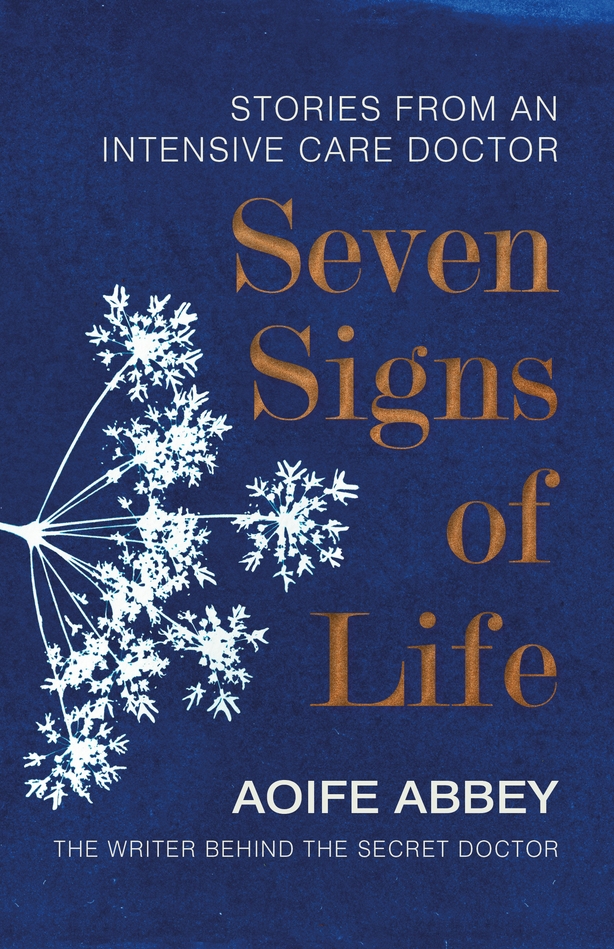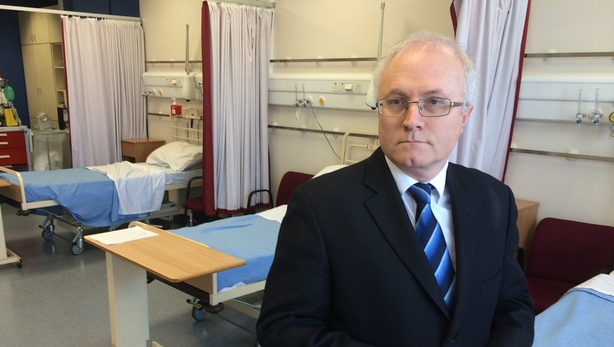Aoife Abbey's Seven Signs Of Life is an honest, compelling and compassionate insight from an intensive care doctor from Dublin and the book is worthy of a place on the medical school curriculum, writes RTÉ's Health Correspondent Fergal Bowers.
Aoife Abbey's Seven Signs Of Life is an honest, compelling and compassionate insight from an intensive care doctor from Dublin, and the book is worthy of a place on the medical school curriculum.
This is not a book from a consultant in intensive care, hardened by years at the coalface of medicine.
Here, Dr Aoife Abbey details her experiences in over 10 hospitals in Britain, having qualified there in 2011.
She tells of her experiences through seven emotions - fear, grief, joy, distraction, anger, disgust and hope.
The account charts her encounters with many patients, living and dying, and her work as an intensive care specialist registrar on the road, hopefully, to becoming a consultant one day.
Dr Abbey is the type of doctor most people I think would want to find at the side of their bed if they were critically ill.
This is a book with a warm heart, but also does not shy from honesty. The relationship between doctor and patient is not equal. Dr Abbey rightly notes that every meeting she has with a patient will almost invariably be more significant to them than it is to her.
As a doctor, she says you should never promise anything to a patient that is not yours to promise. When breaking bad news, you are actually breaking something. Patients are also now much better informed through the internet, and can easily find out what the long-term prognosis for a cancer may be.
The nature of her work is different to a GP, or many other specialists, who may have a long term medical relationship with a patient. Some of her patients may only see her fleetingly, or not at all, as she works to resuscitate them, or verify them as dead.
This is not a grim read. It's beautifully written, with valuable insights about how different patients and their families want different things from her and it is fascinating.

The huge scope of things an intensive care doctor needs to deal with conditions them to take many things in their stride.
Dr Abbey explains the importance of talking to patients and understanding them, away from high-tech equipment and advanced treatments. She says it's a strange thing to go through something so significant, with a critically ill patient, and yet to share no real relationship at all.
But there are real people within the chapters of this book, some screaming, asking if they are going to die. Others are family members stricken by grief over a loved one and calling her a murderer.
She observes that patients under the pressure of unexpected illness are often not the person they would recognise as themselves. That the world around them can become unfamiliar, and during this time they are reliant on strangers, doctors and nurses they do not know.
In an intensive care environment, the doctor and patient both can't succumb to fear, otherwise the outcome won't be good.
While a certain detachment is needed to do the job, the doctor also has to connect with the patient and their family.

Little of what Dr Abbey learned in medical school prepared her for breaking bad news - which she compares to throwing a grenade into a room where a family has gathered in fear.
The pressures of the job are a challenge, and mistakes occur. She tells the story of how she missed something crucial on viewing a scan. But she also makes the important point that nobody goes to work to do a bad job. In a world of trolleys, packed wards and bed pressures, she cites a now-famous phrase - the standard you walk past is the standard you accept.
The book chronicles how a patient's world can change in seconds. Dr Abbey may have minutes to explain to a patient that they are about to die, and what is going to be done to ease that death. If you want to live, you have to die and this thought permeates the pages of this thoughtful book. There's the story of a patient who is undergoing a fairly straightforward procedure and needs a general anaesthetic. He has an unexpected heart attack while 'under' and never wakes up.
Dr Abbey sums up the ethos of being a good doctor well, saying the fear of standing over a patient, with their life in your hands, becomes the push you need to work to a standard where you can always look back and know that you did your best.
Fergal Bowers is the RTÉ Health Correspondent.

